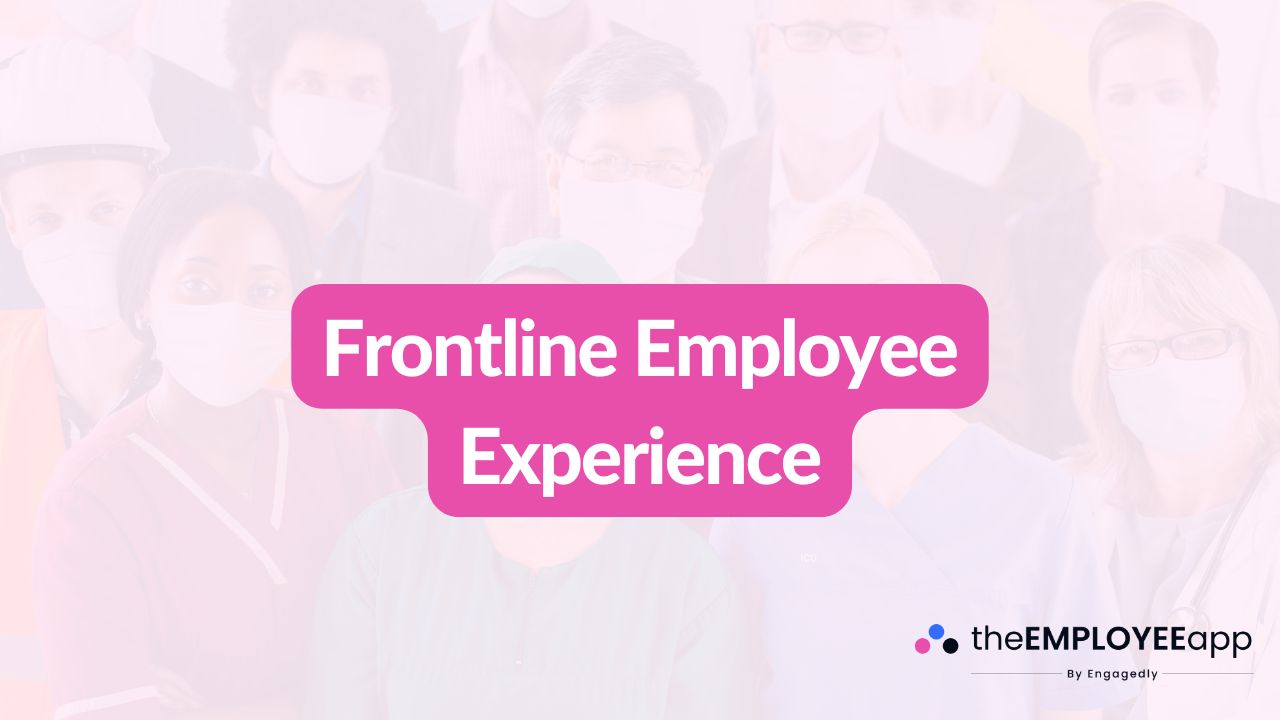
Frontline employee experience refers to the overall journey, environment, and interactions that frontline workers have with their employer. It covers every aspect of their daily work, from access to communication and training, to the tools they use, to the recognition and support they receive. Because frontline employees are often the direct link between a company and its customers, their experience has a powerful impact on customer satisfaction, business performance, and long-term workforce retention.
Frontline employee experience is the sum of all the moments that shape how frontline workers feel about their roles. Unlike traditional office employees, frontline workers—such as retail associates, healthcare professionals, hospitality staff, or manufacturing employees—often face unique challenges. These include irregular schedules, limited access to company technology, and fewer opportunities for face-to-face communication with leadership.
A strong frontline employee experience ensures these workers feel supported, connected, and valued. It provides them with the resources, communication, and tools they need to do their jobs effectively and with confidence.
Frontline employees are the backbone of many industries. They are the ones delivering products, providing services, and interacting directly with customers. When their experience is positive, they feel more engaged, motivated, and loyal to their employer. This leads to better customer interactions, stronger team performance, and lower turnover.
On the other hand, a poor frontline employee experience can result in burnout, frustration, and high attrition. For organizations, this creates added costs in recruitment and training, and risks damaging customer satisfaction.
Communication
Frontline employees need clear, consistent, and timely communication from leadership. Mobile-first communication platforms, team meetings, and accessible updates ensure everyone is aligned and informed.
Access to Tools and Technology
Giving frontline workers the right technology improves efficiency and reduces frustration. Whether it’s scheduling apps, digital handbooks, or training platforms, modern tools play a big role in shaping experience.
Training and Development
Ongoing opportunities to learn new skills, complete compliance requirements, and grow professionally make employees feel valued and supported.
Recognition and Feedback
Recognizing achievements, both big and small, boosts morale. Regular feedback also helps frontline workers stay engaged and motivated.
Work Environment
A safe, respectful, and supportive environment makes frontline employees feel they are part of a larger purpose.
Leadership Support
Managers and supervisors play a direct role in shaping frontline experience. Their ability to coach, listen, and support employees is critical.
Higher Engagement: Employees who feel supported are more engaged in their work.
Stronger Customer Service: Positive experiences for employees often translate to better service for customers.
Reduced Turnover: When employees feel valued, they are less likely to leave.
Increased Productivity: Access to the right tools and clear communication helps workers perform efficiently.
Better Organizational Alignment: A connected frontline workforce ensures company goals are understood and executed.
Improving frontline employee experience comes with unique challenges:
Limited access to company email or intranet
Scheduling difficulties due to shift-based work
Communication gaps across locations or teams
Balancing workload with training opportunities
Overcoming these barriers requires intentional strategies, such as mobile communication tools, micro-learning modules, and recognition programs designed for frontline teams.
Organizations can take practical steps to improve the experience of their frontline workforce:
Invest in mobile-first technology so employees can access resources anytime.
Create a feedback culture where employees can share ideas and concerns.
Offer flexible training that fits into busy schedules.
Celebrate wins regularly to reinforce motivation and pride.
Empower managers with coaching skills to better support their teams.
As businesses continue to evolve, the frontline employee experience will become a bigger priority. Advances in technology, such as AI-driven scheduling and personalized training, will help make frontline work more efficient and engaging. Organizations that prioritize employee experience will not only retain their workforce but also gain a competitive edge by delivering better customer experiences.
The frontline employee experience is central to organizational success. When companies empower their frontline teams with strong communication, access to resources, and recognition, they create a motivated and engaged workforce. In return, businesses benefit from greater productivity, stronger customer relationships, and long-term loyalty. Prioritizing frontline employee experience is not just an HR initiative—it’s a strategic investment in business growth.